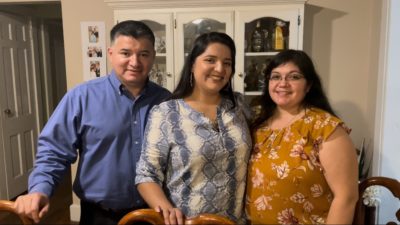
|
|
When was the first time you had a Latinx teacher or professor?
For many people, the answer to this question is quite eye-opening. That was the case for Dr. Yuliana Rodriguez, clinical assistant professor at the School of Education at UNC-Chapel Hill.
Yuliana earned her doctorate in human development and family studies from the University of North Carolina at Greensboro. During her 17 years of studies — from kindergarten all the way to her postgraduate studies — not once did Yuliana have a Latinx educator teach her. “My response to that question … has fueled a lot of the work that I do,” she says.
For Yuliana, representation in the classroom truly matters. And she has the research to back up that statement. “When a Black student has at least two Black teachers in the classroom during elementary school — at any point during elementary school — it doubles their chances of going to college,” she explains. “There’s something about seeing someone that looks like you taking a lead in the classroom, in the community. I mean … that matters.”
And this representation matters in every educational environment. But this representation is hard to come by: only 5% of college professors in the United States are Latinx.
During her six years of teaching, Yuliana’s students always share with her early on how excited they are to have a Latina educator. It’s because of this excitement that she shares with them on the first day of class her life journey and how she immigrated to this country when she was a child.
“I don’t shy away from that experience because I don’t want them to shy away from that experience,” she says. “I want them to feel a sense of pride, to be able to share their background, and to bring those experiences into the classroom.”
As the mother of a 3-year-old and as an aunt, Yuliana is very aware of the role she plays in her students’ lives, as they may soon be teaching her son, nieces, and nephew. “It’s become even more urgent to me that my students understand the role that they play in our society and how much of an impact they can make, especially my students of color,” she says.
Yuliana’s advice to her students as future educators? “Continue to trust that your experiences [and] your background [are] bringing brilliance to the spaces that you’re occupying.”








